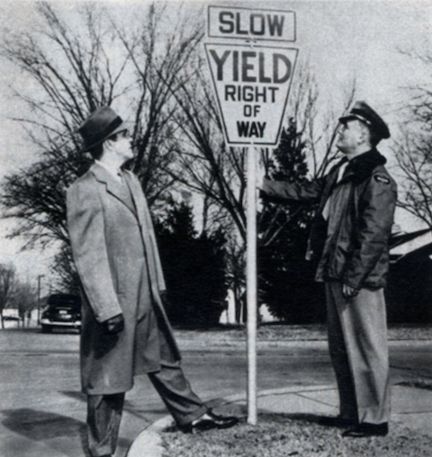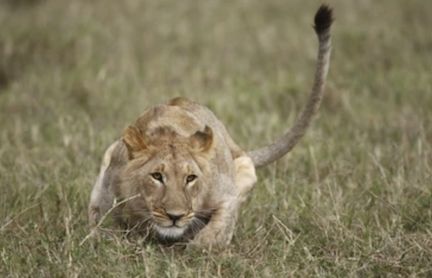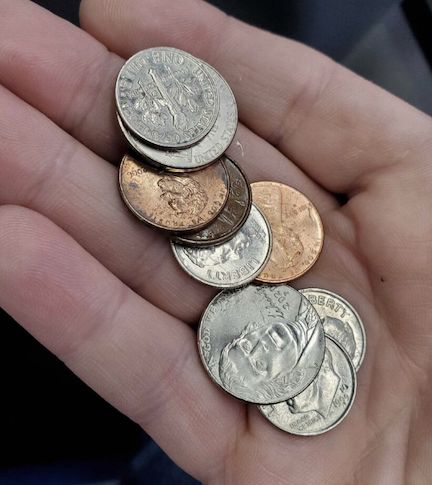Yielding to Avoid a Crash or a Clash
Oklahoma highway patrolman Clinton Riggs was a student at the Northwestern University Traffic Institute, now the Center for Public Safety, in 1939 when he created the yield sign as a class assignment. The original yield sign was keystone shaped and read, “Yield Right of Way” in black letters on a bright, yellow background. Yellow was used because reflective material was not yet available and it was the most visible color at night.

*photo credit unknown
Riggs’ goal was to improve public safety and determine liability in an accident. In 1950, as a member of the Tulsa Police Department, Riggs placed the first yield sign at the most dangerous intersection in the city. Within a year, the number of accidents fell to zero. By 1954, the Manual on Uniform Traffic Control Devices added the yield sign to similar right-of-way intersections. Yield signs soon appeared at intersections across the country, with the keystone shape being replaced with an upside-down triangle with black lettering and a border, but the sign remained yellow. Over time, the signs began only saying “yield.”
Yielding not only helps us be better, safer, and more cnsiderate drivers. Yielding to God, to God's Word, to the Holy Spirit, and yeilding to each other helps us become better disciples of Jesus, children of God, and brothers and sisters to each other!
Oh the crashes and clashes we could avoid if we would just yield to the wisdom and commands of the Lord, and to the needs or preferences of others!
"Trust in the LORD with all your heart and lean not on your own understanding; in all your ways submit [YIELD!] to him, and he will make your paths straight" (Proverbs 3:5-6, NIV).
"Submit [YIELD!] yourselves therefore to God. Resist the devil, and he will flee from you" (James 4:7, ESV).
“You stiff-necked people, uncircumcised in heart and ears, you always resist [fail to YIELD] the Holy Spirit. As your fathers did, so do you" (Acts 7:51, ESV).
"Submitting [YIELDING] to one another out of reverence for Christ" (Ephesians 5:21, ESV).
Eyes on the Back of God's Head
When a lion or tiger wants to hunt its prey, it relies on the element of surprise. They seldom approach their pray from the front, because once observed, they've ruined that element of surprise, making the hunt and ultimate victory more difficult. Once observed, the big cats often give up and retreat.
In Africa, to protect themselves from lions and tigers, people wear masks with prominent eyes on the back of their heads and even paint large eyes on the back of their livestock, hoping the vicious cats will be confused, finding no clear path for surprise, and simply give up the hunt.

These big, predatory big cats will often change their behavior when they realize they are being watched.
Our great big, ominicient God has, so to speak, eyes on the back of his head. He is always watching us. Ought not this truth cause us to change our behavior? We cannot fool Him, hide our sin from Him, nor surprise Him with our sin. He sees all and knows all.
Next time you think no one is watching, just look up (and look inward!). Give up the pursuit of whatever it is you are tempted to do.
"The eyes of the LORD are in every place, Keeping watch on the evil and the good" (Proverbs 15:3, NKJV).
"Where can I flee from your presence? If I go up to the heavens, you are there; if I make my bed in the depths, you are there. ..." (Psalm 139:7, NIV).
Even Small Acts Of Honesty Can Be Huge
Back in 1997 a Brinks armored truck was involved in a crash. It ended up dumping hundreds of thousands of dollars onto a street in Miami, Florida. Witnesses and spectators rushed to the scene — not to help, but to steal! Onlookers, grabbing fists of cash from the street, sidewalk, and gutters, ran from the area, never to be seen again. Others simply found cash and coin after the fact, not knowing when or how the money was deposited there. Police, in desperation, put out an offer of amnesty for any who would return their take of the dumped payload.
Only two people steppef forward:
MIAMI (CNN) -- A mother of six and a school boy are the only ones to have returned money they found in the street after an armored truck overturned in a Miami neighborhood Wednesday.
Only Faye McFadden, who returned $19.53, and 11-year-old Herbert Tarvin, who gave back 85 cents, took advantage of a police offer of amnesty for anyone returning money by last weekend.
Little Herbert said that he had to "do the right thing and turn the money in becuase it doesn't belong to me."

Eighty-five cents. Eighty-five cents out of hundreds of thousands of dollars. Doesn't sound like much, does it? And yet it might as well have been millions. Herbert didn't "steal" the change he recovered from the street; he simply found it there. But his heart was to do the right thing.
Sometimes "the right thing" comes in small acts of obedience. It's in the daily, small gestures of honesty and obedience that character is forged.
“One who is faithful in a very little is also faithful in much, and one who is dishonest in a very little is also dishonest in much" (Luke 16:10, ESV).
"His master said to him, ‘Well done, good and faithful servant. You have been faithful over a little; I will set you over much. Enter into the joy of your master'" (Matthew 25:23, ESV).
"You shall not steal," (Exodus 20:15, NIV).